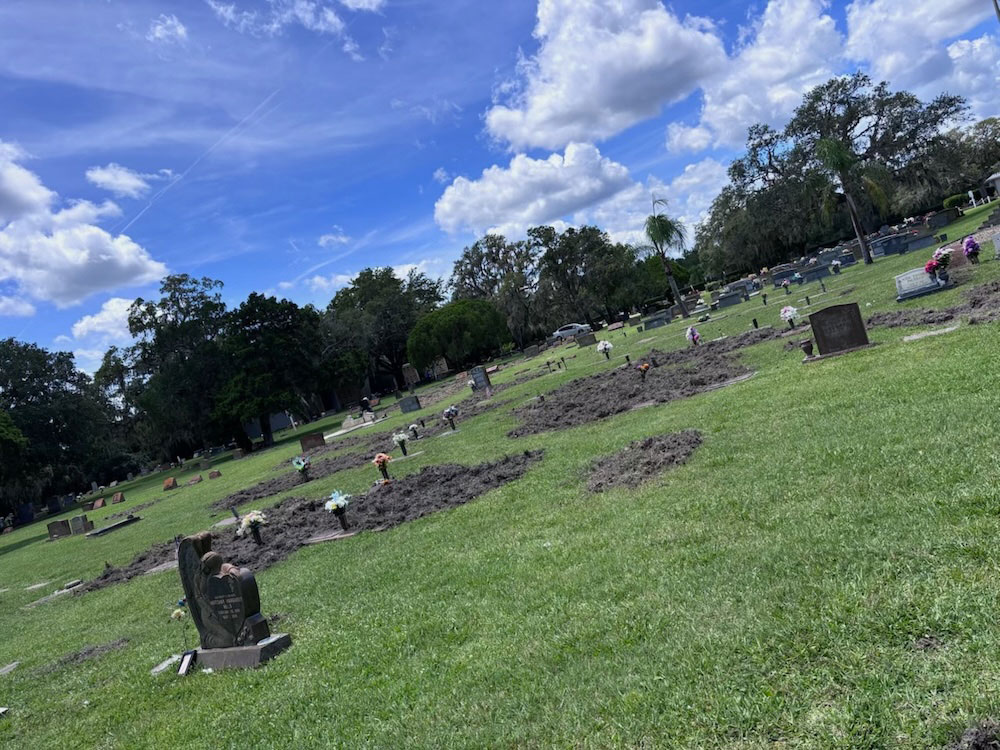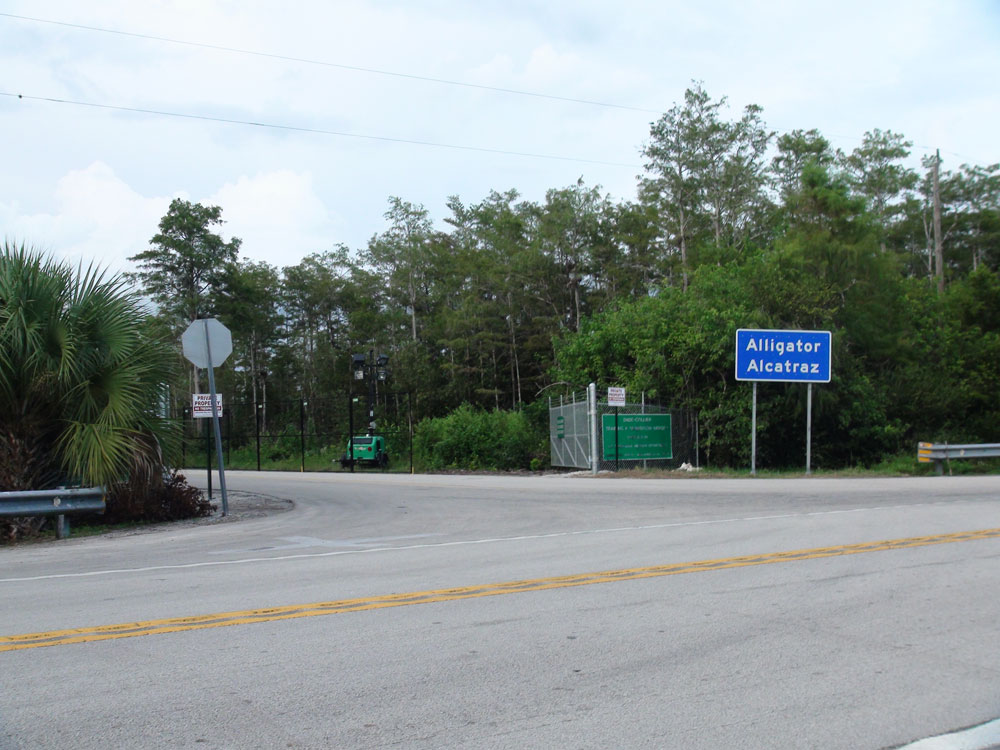A 70-year-old Bunnell resident wished to go to Craig Flagler Palms Cemetery on Old Kings Road on August 16 to see the grave of his late son. Three years ago, his 32-year-old son Evan passed away. His birthday was August 16.
What he discovered in the graveyard astounded the Bunnell resident. It was absolute degradation, he said. The grass was overturned, and large areas of the park were reduced to brown clumps, as though someone or something had plowed or foraged through gravesites.
People weren’t doing this, thus it wasn’t desecration in the traditional sense of the word. They were wild hogs.
In Palm Coast and Flagler County, it has been a persistent issue that is getting worse as development keeps destroying habitats. In addition to frustrating and occasionally frightening residents and businesses, including the management of Craig Flagler Palms and families that visit the grounds, the hogs, which frequently travel in broods, are difficult to ward off and the damage is expensive to repair.
Sal Passalaqua Jr., the area manager and funeral director at Craig-Flagler Palms, stated in a letter he has been sharing with those impacted that feral hogs have been stealing food from our cemetery over the past few weeks. Given how destructive these animals can be, it makes sense that families and the community, who place a great deal of importance on this hallowed area, are concerned about the damage. We are worried about the same things.
According to Passalaqua, those who are not aware of the hog infestation—which can strike indiscriminately—have spread false information on social media as a result of seeing the hogs stomping. He stated that the cemetery has taken the matter very seriously and has implemented a number of actions in response to the graveyard’s dedication to caring for our grounds with respect, decency, and care.
The hogs have been lured away from the burial grounds by a professional trapper. To keep an eye on the hogs and make trapping easier, cameras are being employed. In order for the cemetery to continue reflecting the tranquility and respect it merits, the staff are trying to rehabilitate the impacted sections, according to Passalaqua.
We are being completely open about the difficulties and the actions we are doing to resolve them because we understand how distressing it is for families to witness this kind of harm. “We do not take lightly the responsibility of protecting our community cemetery,” he stated.
Palm Coast has no jurisdiction over the issue. In response to residents’ complaints, a city official said today that the City of Palm Coast does not provide the service of containing and removing wild hogs, even in Palm Coast, where they have destroyed numerous yards. The comment seemed to have been shared widely. The City of Palm Coast does not offer the service of containing and removing wild hogs. Our animal control officers lack the necessary tools and certification to trap feral hogs. To aid with this kind of wildlife annoyance, we do, however, provide local businesses and individuals with a list of state-registered trappers and resources.
The message went on to say that the County has created a Feral Hog Activity Dashboard to assist in tracking hog sightings and movements in the area, and the City and Flagler County have previously worked together on this issue. Regarding the current issues around Craig Flagler Palms, the city would not have jurisdiction over this area because it is county property.
Although Craig-Flagler Palms has a postal address in Flagler Beach, the cemetery is under county control.
The Flagler County administration discussed the issue before the County Commission last year and established an online dashboard for individuals to record hog sightings after receiving repeated complaints. Over a dozen sightings have been reported so far this month, all at the Hidden Lakes subdivision off Old Kings Road in Palm Coast, according to the dashboard. Other than providing inhabitants with a vent, it’s unclear what use the dashboard has served. The county’s land manager, Eric Revuelta, did not answer the phone prior to the publication of this article.
Feral hogs have caused hundreds of thousands of dollars’ worth of property damage to Grand Haven residents in recent years, and unless we find a solution, the harm will only become worse. During their workshop last year, a Grand Haven resident told the county commissioners, “I do like to think that we are the superior species here.”
The commission hasn’t talked about the issue since, but even then, they came to the conclusion that there was no way to stop feral hogs from roaming, foraging, and destroying property. The best the county could do was to contain the issue. Every year, the county’s management agents trap a large number of hogs, frequently killing them.
Florida is home to feral hogs, which favor pine flatwoods, freshwater wetlands like Graham Swamp, and palm hammocks. According to the Florida Fish and Wildlife Conservation Commission, they use their broad snouts for roots, which can disturb the soil and ground cover flora and leave an area resembling a plowed field.According to the FWC’s wild hog page. When it comes to hog hunting, the state agency is fairly lenient.
Palm Coast advises homeowners or business owners who want to have wild hogs captured and taken out to get in touch with a State of Florida-licensed trapper. There is a searchable list on the FWC website. It is also advised that residents who are part of a property management business or homeowner’s association (HOA) get in touch with their representatives, since they may already be working to control the situation.
Red pepper flakes, garlic, and other scent-based items are more compassionate deterrents that can gradually change hog behavior. Because wild pigs will continue to return to places where they feel safe and comfortable—and Palm Coast naturally positions itself as one of Florida’s safest and most comfortable places—it is imperative that these deterrents be used consistently.







